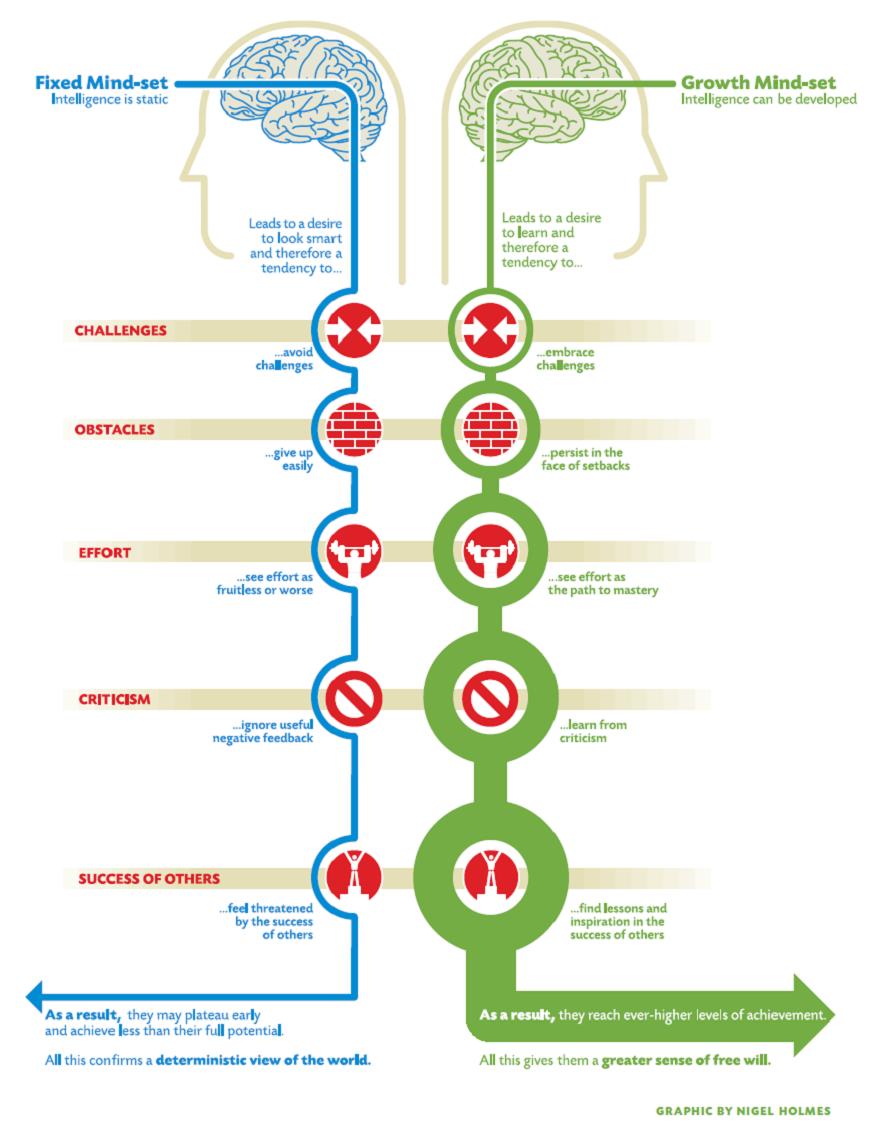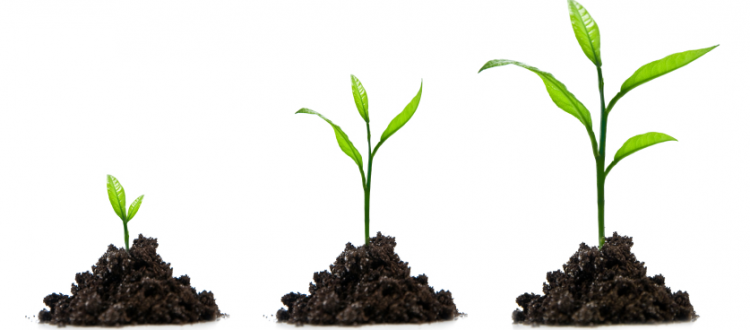The Simplicity of Growth
Between stimulus and response there is a space. In that space is our power to choose our response. In our response lies our growth and our freedom. —Viktor Frankl
Besieged at every turn with stress, work, family, and traffic? Ambushed by the emotional wake of others or a toxic food environment? Have you tried to make some changes but they last hours or days and can’t find a way to make changes stick? Why is it that some people firmly decide to make needed changes and are successful, while the vast majority of others appear to be stuck?
A simple idea born out of decades of research may explain this very familiar pattern, and it has a direct application to the human change process. According to Stanford Psychologist Carol Dweck, there are two views that people have of themselves. A fixed mindset in which people believe they are born or endowed with basic qualities and given a fixed amount of each one, such as intelligence. They worry about how much they have and expend energy trying to document or show to others their endowment. Fixed mindsets react to setbacks with discouragement and resignation, a lack of resilience, a high degree of defensiveness and a perceived lack of control over what they can achieve. Fixed mindset people feel that strengths are static; they avoid challenges and often deny the existence of problems. Talented athletes with a fixed mindset are often not successful because they link their success to their talent and not to hard work and practice.
A growth mindset person believes that with hard work, they can learn and develop skills that they need. They believe they can get better at anything over time and they feel a high degree of control over their lives and what they can accomplish. They respond to setbacks by learning about what went wrong and approach it differently next time. They may seek mentors and do not feel threatened, rather they adapt and are open to feedback. Growth mindset people tend to take on challenges and welcome them. Olympian level athletes have learned that they have to work hard and practice and manage setbacks to get to be number one.

We can build our own pool of resilience and move along the continuum towards a growth mindset. Remembering that changing a habit is hard but not impossible. Likely there may by 2 or 3 very specific behaviors that we are doing/not doing that are contributing to a poor health trajectory. Those behaviors can be named, isolated and remedied one at a time. Identify what you need to learn to be successful.
A client of mine identified 14 foods (binge list) that she tended to overeat and made a decision to stop eating those- she learned they were the root cause of her weight problem. By combining that with meditation and practice, she lost 75 pounds. Another client wanted to speak up in her life and had to learn to enter difficult conversations. As a result of learning how to use emotional courage, she now feels a new sense of freedom and is far more successful in her relationships.
Ask yourself, what you need to learn, identify what you intend to do when (not if) the setback occurs. Hard yes, but doable with a growth mindset. People who are successful in making needed changes in their lives are not born, they are made. Notice your mindset, learn about your obstacles to taking excellent care of yourself so you don’t succumb to preventable illnesses and a constricted life.

